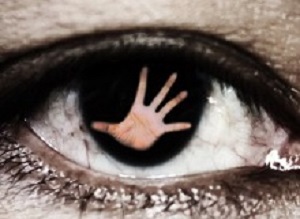 A large prospective study has found that sexual and physical abuse in childhood and adolescence is associated with a greater risk of endometriosis diagnosed during adulthood. The study found that women reporting severe-chronic abuse of multiple types had a 79% increased risk of laparoscopically-confirmed endometriosis.
A large prospective study has found that sexual and physical abuse in childhood and adolescence is associated with a greater risk of endometriosis diagnosed during adulthood. The study found that women reporting severe-chronic abuse of multiple types had a 79% increased risk of laparoscopically-confirmed endometriosis.
"Both physical and sexual abuse were associated with endometriosis risk, with abuse severity, chronicity, and accumulation of types of abuse each associated with increasing risk in a dose-response manner," said Dr Holly R Harris, assistant member of epidemiology in Fred Hutchison's public health sciences division and lead author of the study.
Abuse has been associated with chronic pelvic pain, uterine fibroids, and hypertension in previous studies, but this report – which used data collected from 60,595 women within the Nurses' Health Study II from 1989 to 2013 – is the first to show an association between childhood abuse and laparoscopically-confirmed endometriosis. Study highlights include:
More than 3,000 cases of laparoscopically-confirmed endometriosis were diagnosed during 24 years of follow-up: 21% of all women reported having experienced some level of both child/adolescent physical and sexual abuse; 32% reported child/adolescent physical abuse only; and 12% reported child/adolescent sexual abuse only.
Compared to those reporting no physical or sexual abuse, the risk of endometriosis was greater among those who experienced severe physical abuse or severe sexual abuse. There was a 79% higher risk of laparoscopically-confirmed endometriosis for women reporting severe-chronic abuse of multiple types. There was a stronger association between early life abuse and pain-associated endometriosis (versus endometriosis diagnosed in the absence of pain).
"A growing body of literature suggests that early traumatic experiences affect production of stress hormones and inflammatory responses, and these contribute to chronic pelvic pain and other pain syndromes. Our findings suggest that similar mechanisms may be involved in the association between early abuse and endometriosis diagnosed during adulthood. We need an increased focus on the potential underlying biological mechanisms to fully understand these relationships," Harris said. "This study adds to the growing evidence that abuse during childhood/adolescence is not rare and can have multiple consequences for lifelong health and wellbeing."
The study population was primarily white female nurses between the ages of 25 to 42 at baseline who were participants in the Nurses' Health Study II, which began in 1989 with 116,429 women. Participants receive follow-up questionnaires every two years.
Abstract
Study Question: Is there an association between physical and sexual abuse occurring in childhood or adolescence and risk of laparoscopically-confirmed endometriosis?
Summary Answer: Early life sexual and physical abuse was associated with an increased risk of endometriosis.
What is known already: Previous studies have reported that physical and sexual abuse are associated with chronic pelvic pain (CPP). However, only one study has examined the association between childhood physical abuse and laparoscopically-confirmed endometriosis and did not observe an association with endometriosis risk.
Study Design, Size, Duration: Prospective cohort study using data collected from 60 595 premenopausal women from 1989 to 2013 as part of the Nurses’ Health Study II cohort.
Participants/Materials/Setting/Methods: Participants completed an exposure to violence victimization questionnaire in 2001. Cases were restricted to laparoscopically-confirmed endometriosis. Cox proportional hazards models were used to calculate rate ratios (RR) and 95% confidence intervals (CI).
Main Results and the role of chance: Three thousand three hundred and ninety-four cases of laparoscopically-confirmed endometriosis were diagnosed during 24 years of follow-up. Compared to those reporting no physical or sexual abuse, the risk of endometriosis was greater among those who experienced severe physical abuse (RR = 1.20; 95% CI = 1.06, 1.37) or severe sexual abuse (RR = 1.49; 95% CI = 1.24, 1.79). There was a 79% increased risk of laparoscopically-confirmed endometriosis for women reporting severe-chronic abuse of multiple types (95% CI = 1.44, 2.22). The associations between abuse and endometriosis were stronger among women presenting without infertility, a group that was more likely to have been symptomatic with respect to pain.
Limitations, Reasons for caution: The violence exposure was recalled by the study participants and thus is subject to misclassification as well as recall bias for the cases who were diagnosed prior to 2001. However, our results were similar in a sensitivity analysis including only endometriosis cases incident after their violence history report. In addition, residual or unmeasured confounding is a possibility; however, we were able to adjust for a variety of potential early life confounders. Finally, selection bias is also a possibility if those who chose to return the violence questionnaire did so based jointly on abuse history and endometriosis risk.
Wider implications of the findings: Early life sexual and physical abuse was associated with an increased risk of endometriosis. Severity, chronicity and accumulation of types of abuse were associated with greater risk. Understanding the mechanisms underlying these relations may better define the biologic impacts of abuse and the related pathophysiology of endometriosis.
Authors
Holly R Harris, Friedrich Wieser, Allison F Vitonis, Janet Rich-Edwards, Renée Boynton-Jarrett, Elizabeth R Bertone-Johnson, Stacey A Missmer
[link url="http://www.fredhutch.org/en/news/center-news/2018/07/endometriosis-linked-to-childhood-abuse.html"]Fred Hutchison Cancer Research Centre material[/link]
[link url="https://academic.oup.com/humrep/advance-article-abstract/doi/10.1093/humrep/dey248/5055017?redirectedFrom=fulltext"]Cancer Reproduction abstract[/link]
